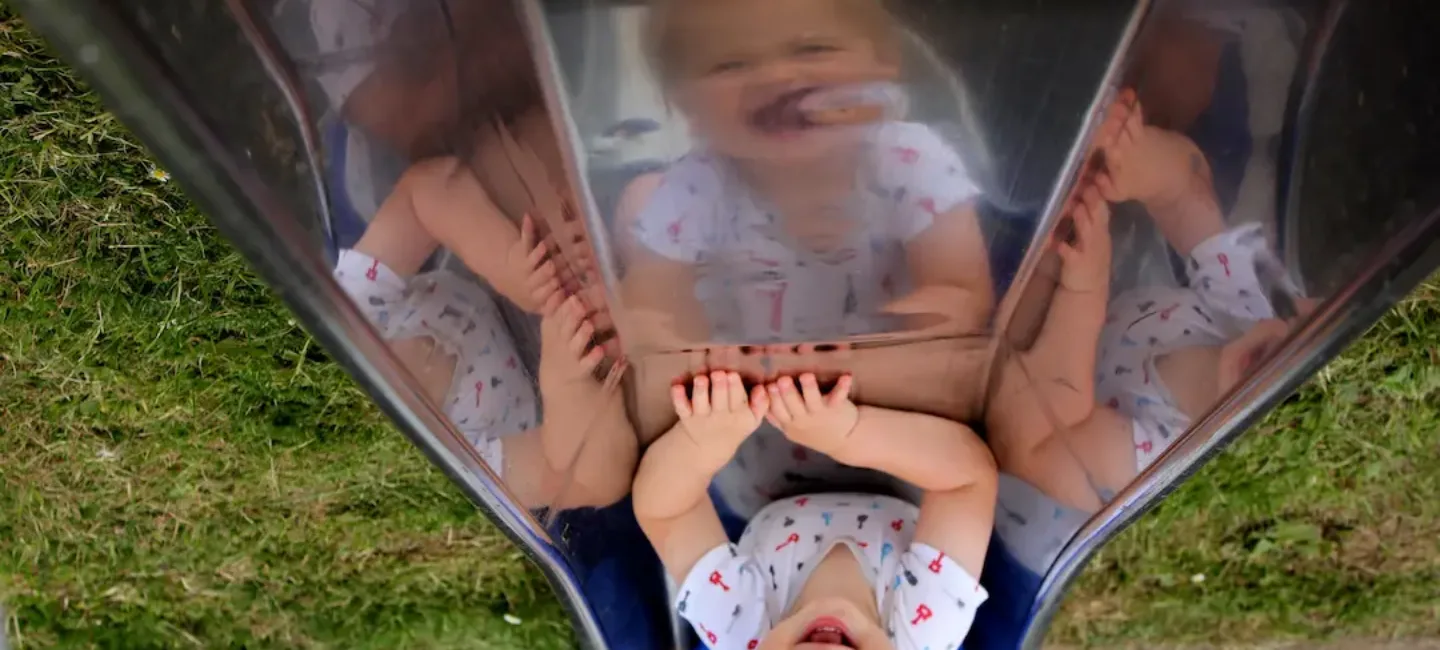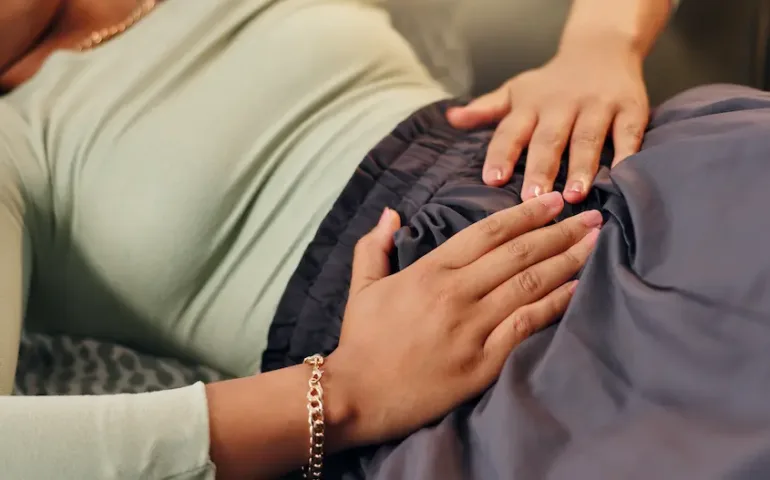
What could be cuter than a baby’s laughter? Your baby’s first laughs are precious moments during your early months as parents. But how does a baby’s sense of humor develop? What makes them laugh? Do babies understand our jokes?
Find out everything about baby laughter!
Your baby’s first laughs: when and why?
Your baby’s first laughs mark an important milestone in their emotional and social development. Besides being incredibly cute, these laughs are a sign of healthy growth. When do they appear?
The stages of laughter in babies
From the very first months, your baby seeks to bond with you. They’ve probably been giving you their most beautiful smiles since birth. Gradually, your baby develops their sense of humor.
Here are the typical stages of laughter development in babies:
- Before 2 months: at this stage, your baby’s smiles are often reflexes linked to their mirror neurons. In other words, if you smile at them… they smile back!
- Between 2 and 3 months: this is when smiles become intentional. Your baby begins to smile in response to familiar faces or soothing voices. This is also when the first little squeals of joy appear.
- Between 3 and 4 months: the first laughs usually appear around this time. They’re often triggered by your facial expressions, tickles, or playful interactions like the classic peek-a-boo game.
These laughs play a key role in your baby’s development. They strengthen the emotional bond with you, encourage communication, and stimulate cognitive skills. Laughter is also an excellent indicator of emotional well-being and security in your child.
Remember that every baby is unique and develops at their own pace. If your little one doesn’t exactly fit into these age ranges, don’t worry—it doesn’t necessarily mean there’s a problem!
The evolution of laughter as your baby grows
- Before 18 months: it’s mainly unexpected situations and the element of surprise that make your baby laugh. But also, your own laughter! In fact, your tone of voice plays a key role. Seeing that something makes you laugh makes your baby laugh too.
- After 18 months: your baby’s jokes begin to involve objects. They enjoy using things in funny ways—putting them on their head or hiding behind them, for example.
- From 2 years old: jokes now also involve words. That’s right—your child now talks, and playing with words, just like with objects, becomes a fun and entertaining activity for both of you!
As they grow, they will sharpen their sense of humor through imagination and play. 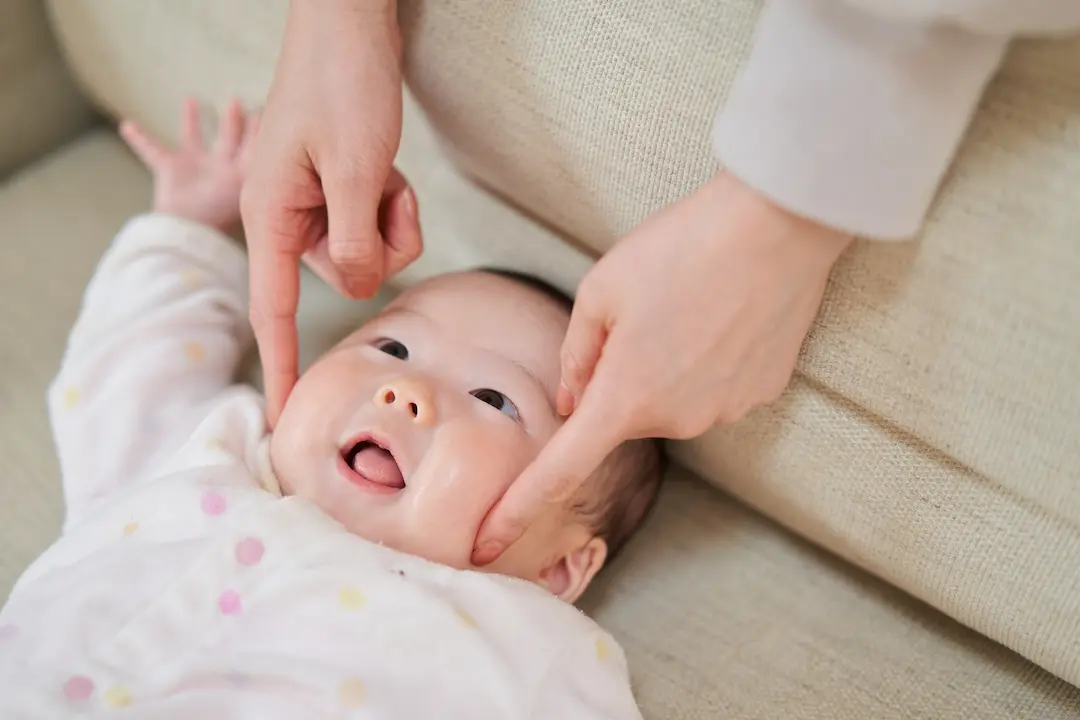
The importance of laughter in your baby’s development
Laughter is much more than a simple expression of joy for children. When a baby laughs, it triggers a complex process that contributes to their cognitive and emotional development. From the first months, your baby’s smiles and laughter are valuable indicators of their alertness and overall well-being.
Cognitive impact
Laughter stimulates your baby’s brain development. When laughing, the brain releases endorphins, neurotransmitters that create a feeling of happiness and pleasure. This positive experience encourages exploration and learning, both essential for cognitive growth.
Playful interactions that make your baby laugh help strengthen neural connections, supporting memory and problem-solving skills. In addition, toys that make your baby laugh can help develop hand-eye coordination and fine motor skills, both crucial for learning.
Emotional impact
Laughter plays a key role in emotional development. The first laughs are often a response to social stimuli, such as smiling faces or familiar voices. These interactions reinforce the emotional bond between you and your baby, creating a sense of safety and trust. When your baby laughs, they express joy and comfort, both signs of emotional well-being. Laughter also helps reduce stress, creating a calm and peaceful environment. 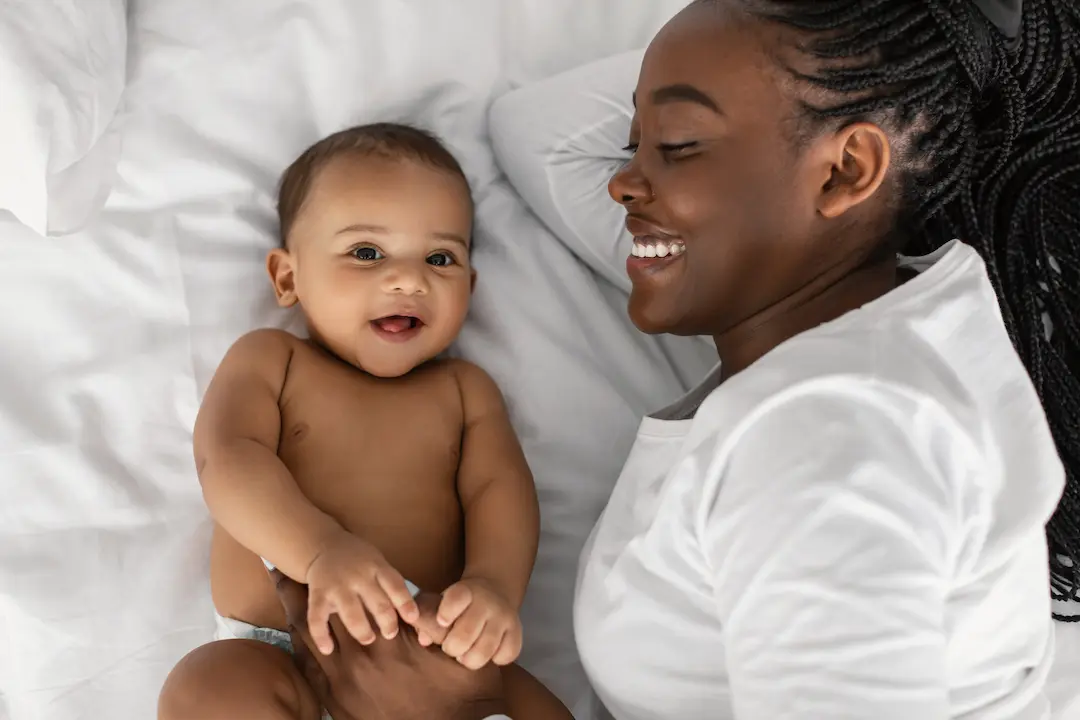
How to encourage your baby’s laughter
To encourage your child to laugh and make others laugh, don’t hesitate to react positively to their jokes. You are their best audience, and seeing that their jokes work is the best encouragement.
Be a role model for your child
Your baby’s sense of humor doesn’t develop only through the parent-child relationship—it also develops through observation. By watching adults laugh together, your baby also builds social and cultural skills.
By using humor daily, you also teach your child to see the positive side of every situation—that many things in life can be laughed about.
Similarly, you can start teaching them the value of self-deprecating humor, helping them learn not to take themselves too seriously in certain situations later on.
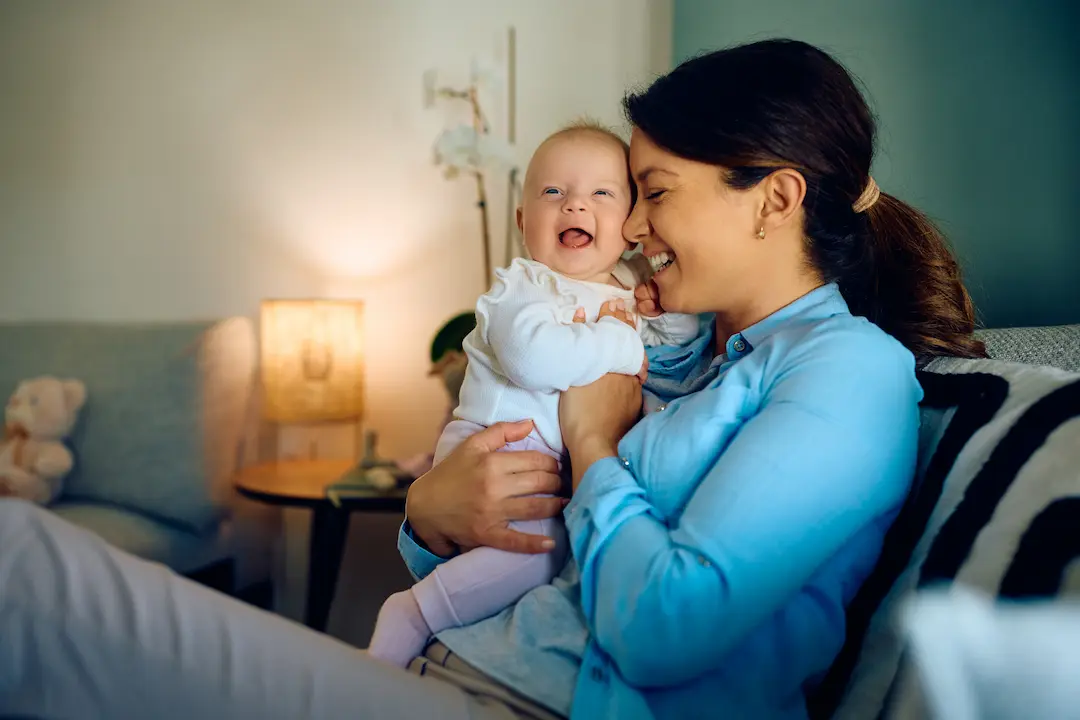
Games and activities to make your baby laugh
- The classic peek-a-boo: hiding your face behind your hands and then reappearing while saying “peek-a-boo” is a timeless game that often makes babies laugh. This game helps your baby understand object permanence, a key step in cognitive development.
- Tickles: whether on the belly or feet, they’re often irresistible. Just make sure the tickles are gentle and pleasant so as not to surprise your baby.
- Facial expressions and funny faces: babies love watching facial expressions. Making funny faces or exaggerating expressions often triggers laughter. Your baby is fascinated by your face and will often try to imitate you, which is also a great exercise to strengthen facial muscles.
- Toys: they are also an excellent source of fun. Different sounds, melodies, or textures can make your baby laugh. Feel free to choose books or toys with animal noises, for example. Your child will enjoy imitating them, learning while having fun!
- Stories: even if your baby is too young to understand all the words, your tone and voice changes can be funny to them. You can use different voices for characters to make storytelling more lively.
In conclusion, your baby’s first laughs are precious and evolve over time, just like their sense of humor. Indicators of comfort and emotional security, laughter contributes to both the cognitive and emotional development of your child while also enhancing their social and cultural awareness.
Want to learn more? Feel free to download the May app, where you’ll find plenty of resources to support and guide you throughout your journey as a new parent.
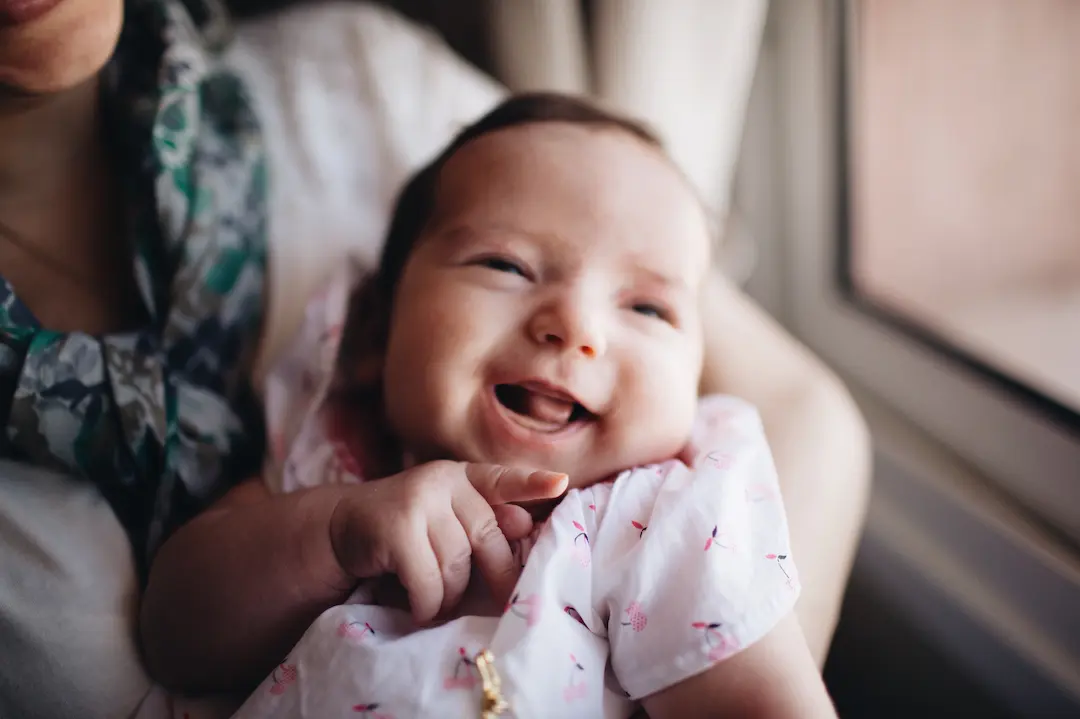
Photos: drazenphoto | Prostock-studio | reinasmyth | cait00sith | Lemnaouer
This text was translated from French by an artificial intelligence. The information, advice, and sources it contains comply with French standards and may therefore not apply to your situation. Make sure to complement this reading by visiting the May US/UK app and consulting the healthcare professionals who are supporting you.
